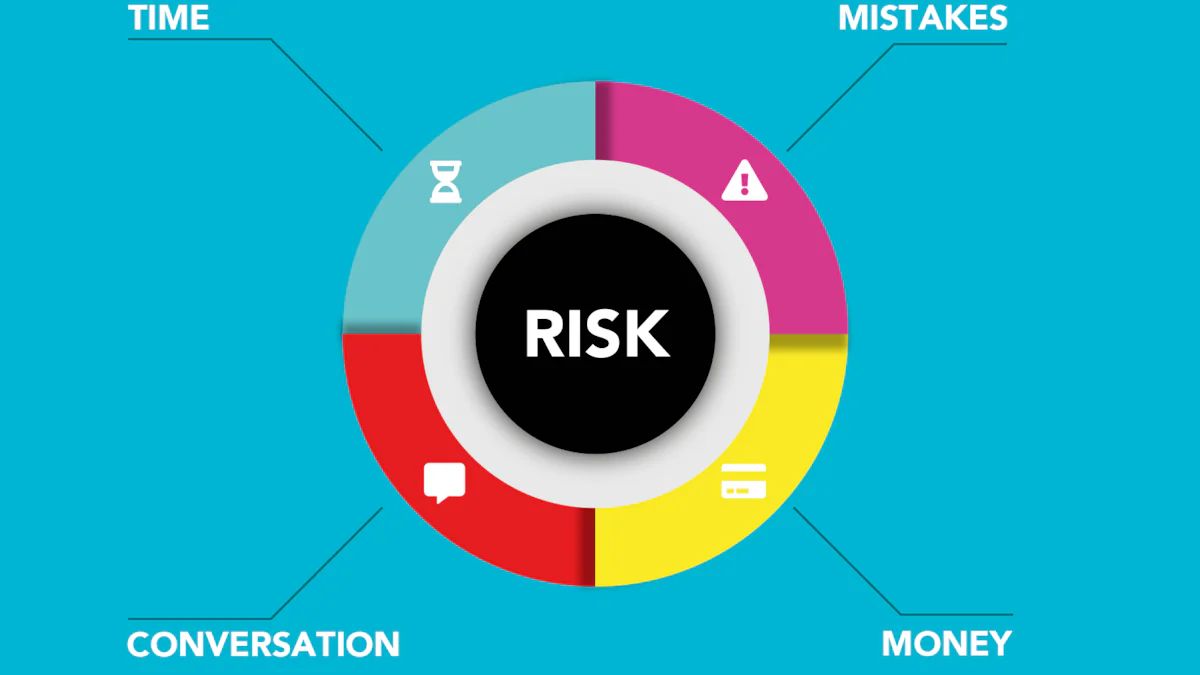Understanding Blockchain Risk: A Comprehensive Guide for 2024
 Understanding Blockchain Risk: A Comprehensive Guide for 2024
Understanding Blockchain Risk: A Comprehensive Guide for 2024
The Risks of Blockchain
Blockchain technology has ushered in a new era of innovation, but it also brings with it a set of risks and challenges that must be carefully understood and managed. Security challenges, technical vulnerabilities, and smart contract programming vulnerabilities are among the primary risks associated with blockchain. Understanding these risks is essential for effectively navigating the complexities of blockchain technology.
Blockchain security challenges: The decentralized and transparent nature of blockchain technology presents unique security challenges that require careful consideration.
Smart contract vulnerabilities: The potential for programming errors in smart contracts poses significant risks to the integrity of blockchain applications.
Hacker attack risk: The risk of hacker attacks targeting blockchain systems is a critical concern that organizations must address proactively.
Security Challenges
Data Security
Ensuring data security within the blockchain ecosystem is a critical concern due to the decentralized and transparent nature of the technology. The distributed ledger system, while offering transparency, also presents vulnerabilities that could compromise the security and integrity of data stored on the blockchain.
Hacker attacks targeting blockchain systems pose a significant risk to the confidentiality and availability of sensitive information. The decentralized structure of blockchain makes it an attractive target for malicious actors seeking to exploit potential vulnerabilities in the network.
Privacy Concerns
Privacy concerns in blockchain stem from its immutability, which means that once data is recorded, it becomes challenging to modify or delete. This characteristic raises significant privacy considerations as any personal or sensitive information stored on the blockchain becomes permanent and publicly accessible.
Protecting sensitive information within the blockchain ecosystem is a critical security challenge. It requires robust measures to ensure that confidential data remains secure and inaccessible to unauthorized parties.
Blockchain risk, Blockchain security challenges, Hacker attack risk
Technical Vulnerabilities
Smart Contract Programming
Smart contract programming vulnerability risk is a significant concern within the realm of blockchain technology. The potential for vulnerabilities in smart contracts poses a direct threat to the financial integrity of blockchain applications. Programming errors and bugs in smart contracts can lead to substantial financial losses and contractual disputes, undermining the trust and reliability of the entire system.
Blockchain expert John Smith: "Smart contract vulnerabilities are a pressing issue that demands meticulous attention to detail in programming and rigorous testing."
Scalability Issues
Blockchain technical challenge risk also encompasses scalability issues, which directly impact the transaction speed and overall efficiency of blockchain networks. As the volume of transactions on a blockchain network increases, scalability becomes a critical concern. Addressing scalability challenges is imperative for ensuring the widespread adoption and seamless functionality of blockchain technology.
By understanding and addressing these technical vulnerabilities, organizations can proactively mitigate blockchain risk while working towards enhancing the robustness and reliability of their blockchain applications.
Blockchain risk: Smart contract programming vulnerability risk, Blockchain technical challenge risk
Navigating Blockchain Risk
Risk Management Strategies
When it comes to mitigating blockchain risk and addressing blockchain security challenges, organizations must implement robust security measures and encryption protocols. These measures play a crucial role in safeguarding sensitive data and ensuring the integrity of blockchain systems. Regular audits and vulnerability assessments are also essential components of effective risk management. By conducting these assessments, organizations can proactively identify and address potential vulnerabilities, thereby reducing the likelihood of security breaches and data compromises.
Regulatory Compliance
Managing blockchain risk also involves adhering to regulatory requirements and industry standards. Compliance with data protection laws and regulations is paramount for mitigating legal and regulatory risks associated with blockchain technology. By aligning with established standards and regulations, organizations can demonstrate their commitment to protecting user data and maintaining the integrity of their blockchain systems.
Mitigating Blockchain Risk
As organizations navigate the landscape of blockchain technology, understanding and mitigating the associated risks are paramount. By addressing security challenges, technical vulnerabilities, and regulatory compliance, businesses can effectively manage blockchain risk. Implementing proactive risk management measures enables organizations to navigate the complexities of blockchain technology more effectively. It is essential to develop effective risk mitigation strategies that encompass these critical aspects, ensuring the robustness and reliability of blockchain applications.
